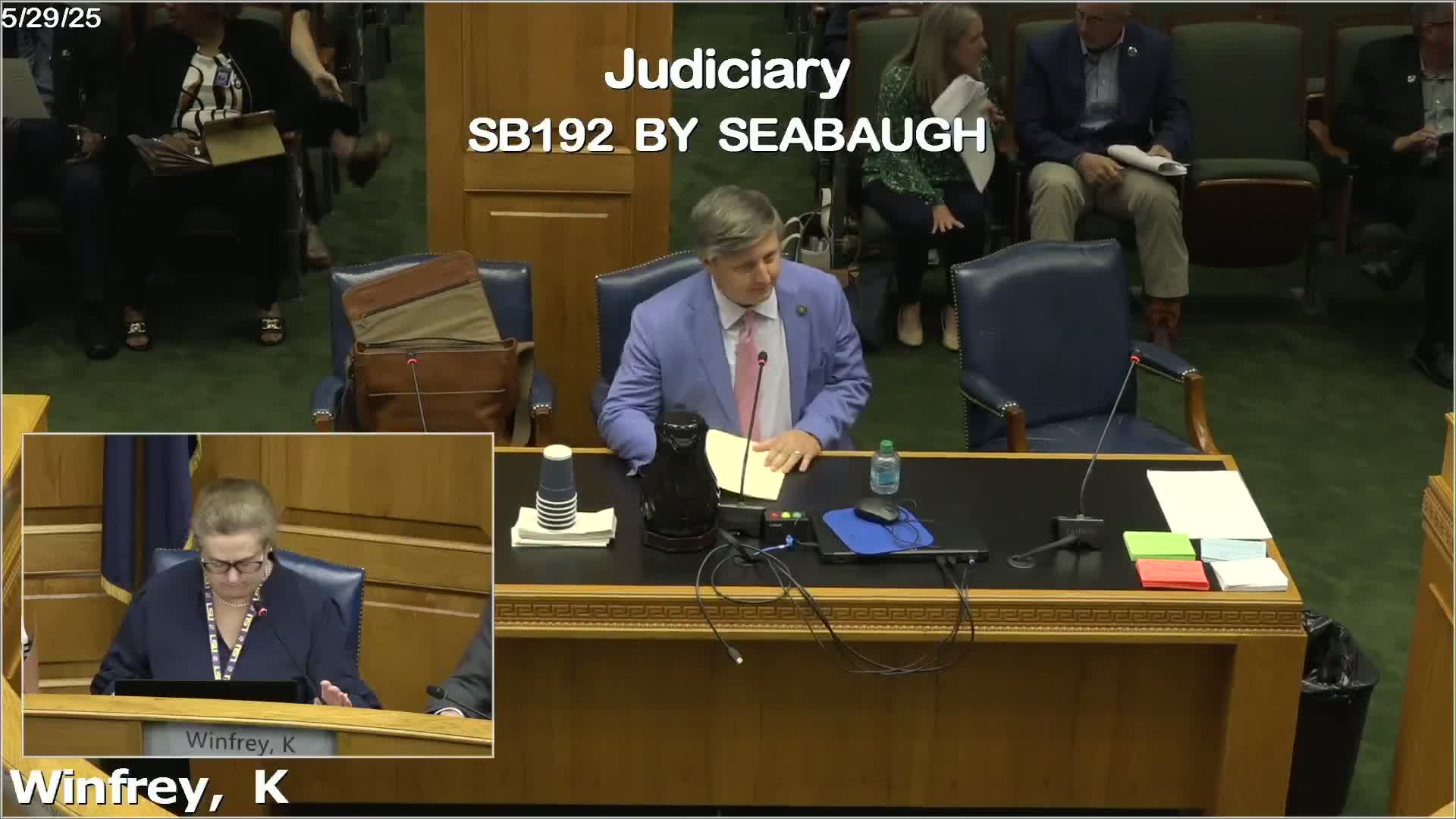Article not found
This article is no longer available. But don't worry—we've gathered other articles that discuss the same topic.
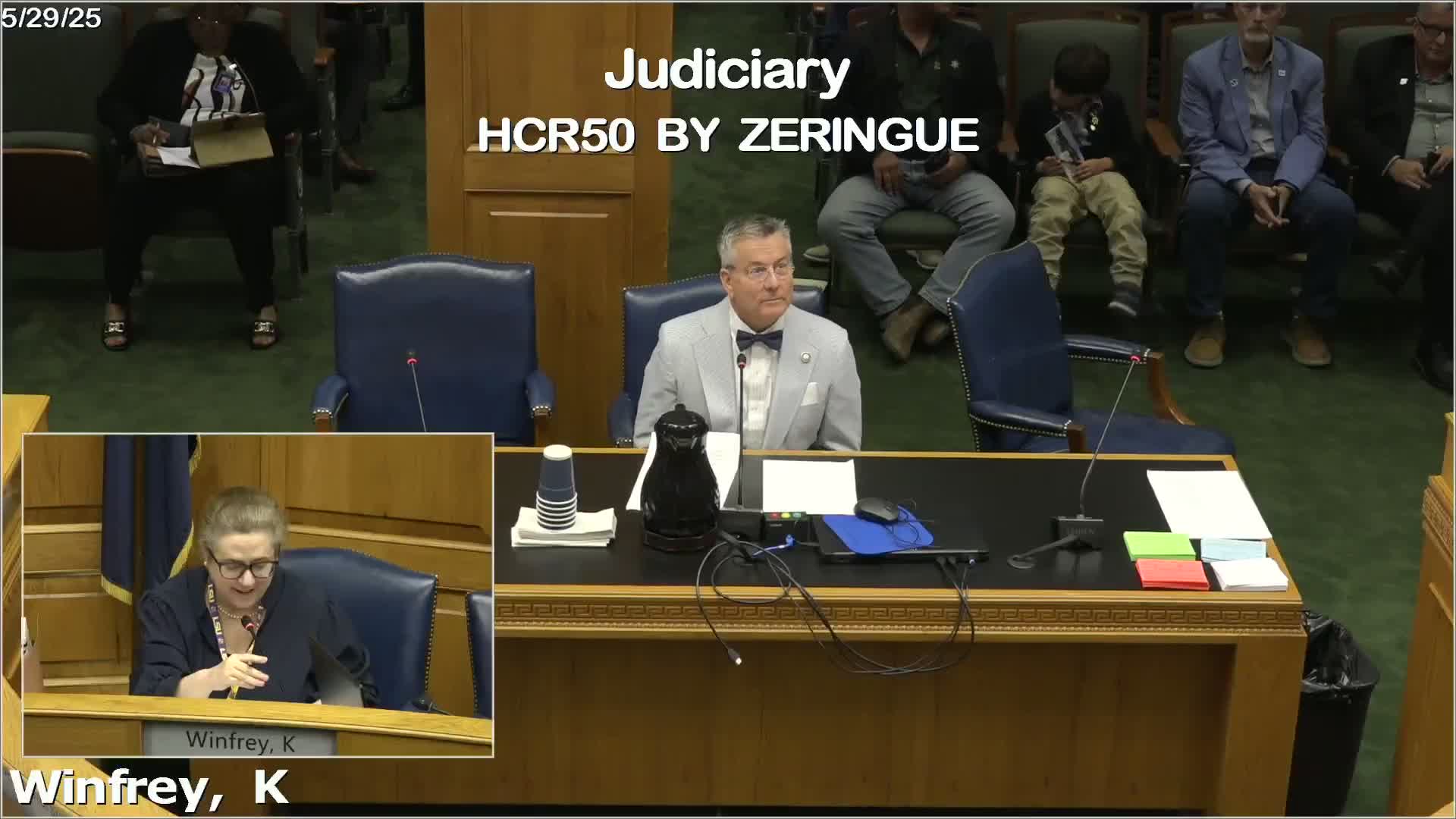
Legislator directs auditor to study court system efficiency; amendment trims scope and extends report date
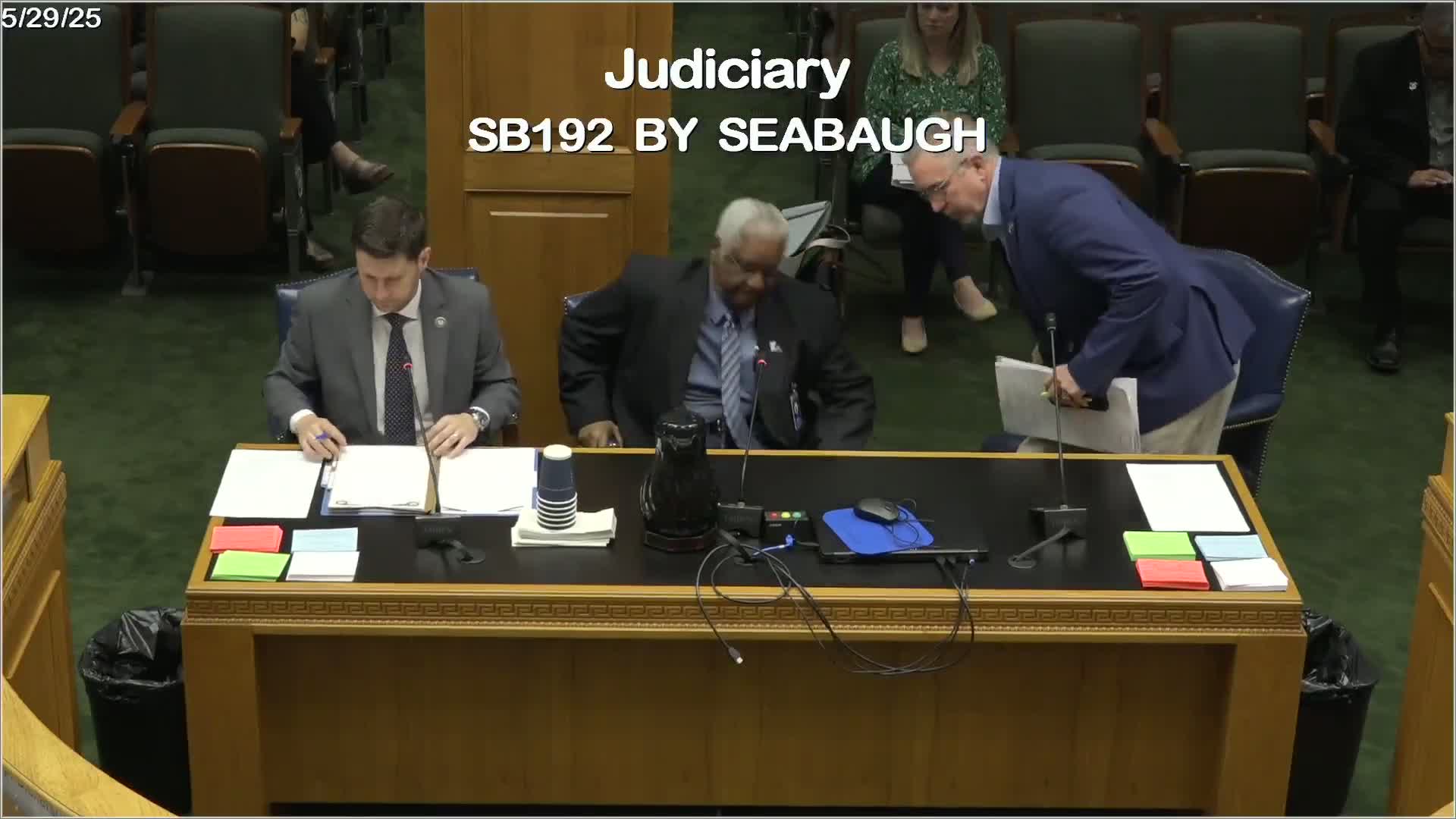
Committee backs bill creating 'auxiliary' law-enforcement role, debates training and certification
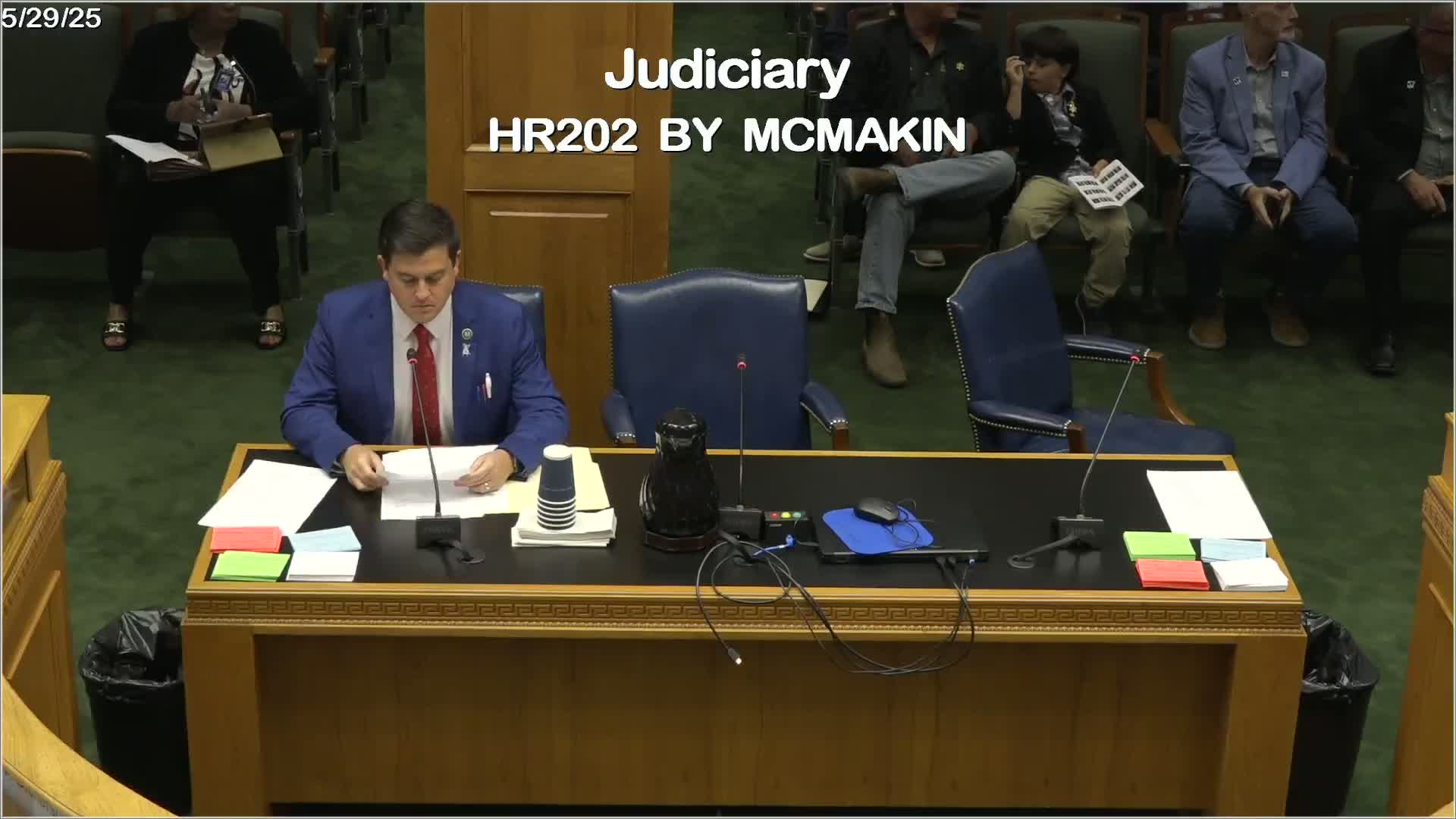
Committee approves resolution directing ethics board and auditor to provide public records on justices of the peace
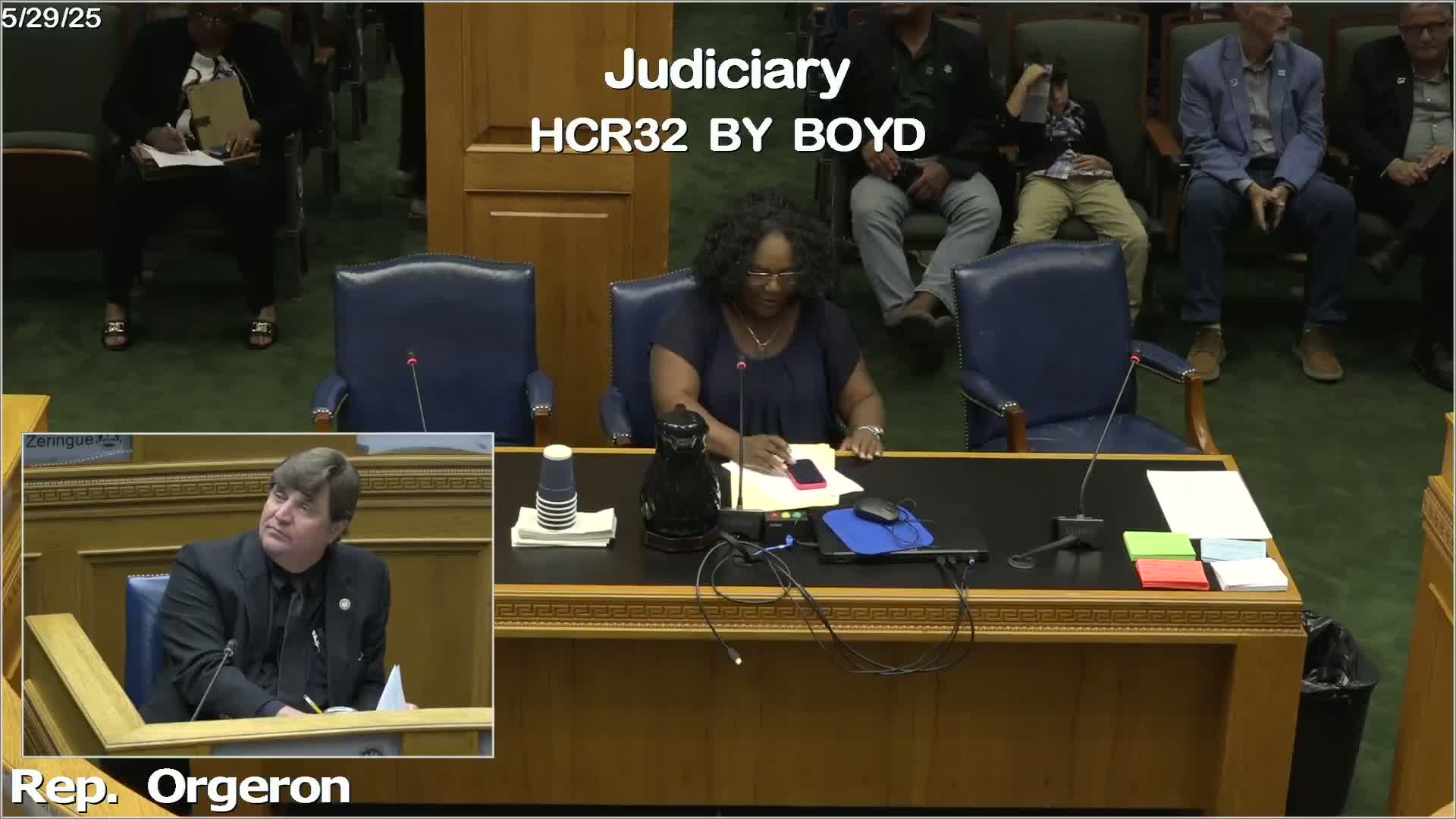
Committee reestablishes Judicial Security Task Force to study courthouse safety after Orleans incidents
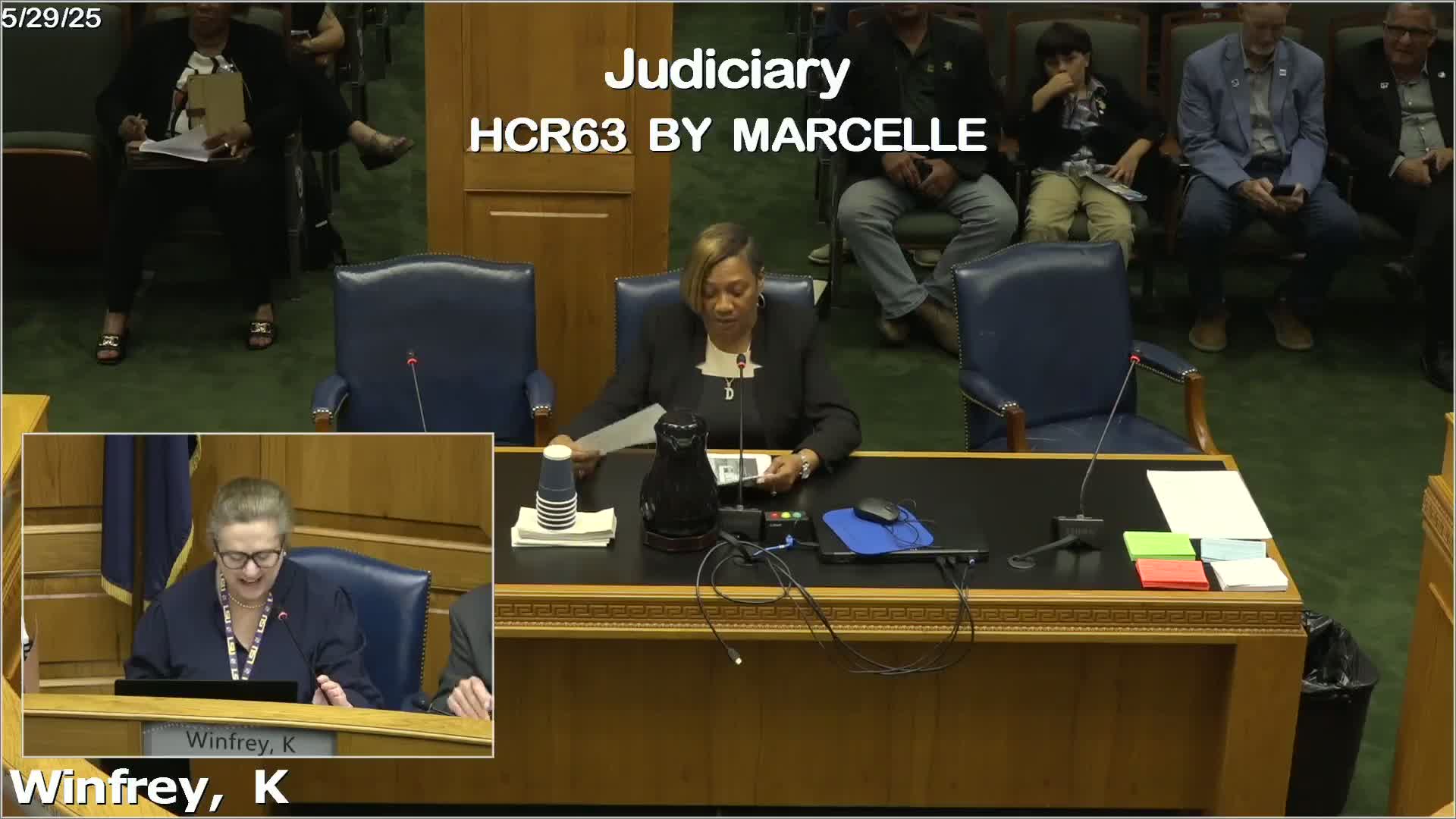
Representative moves to defer traffic‑stop data study after Louisiana State Police says it is already compiling reports
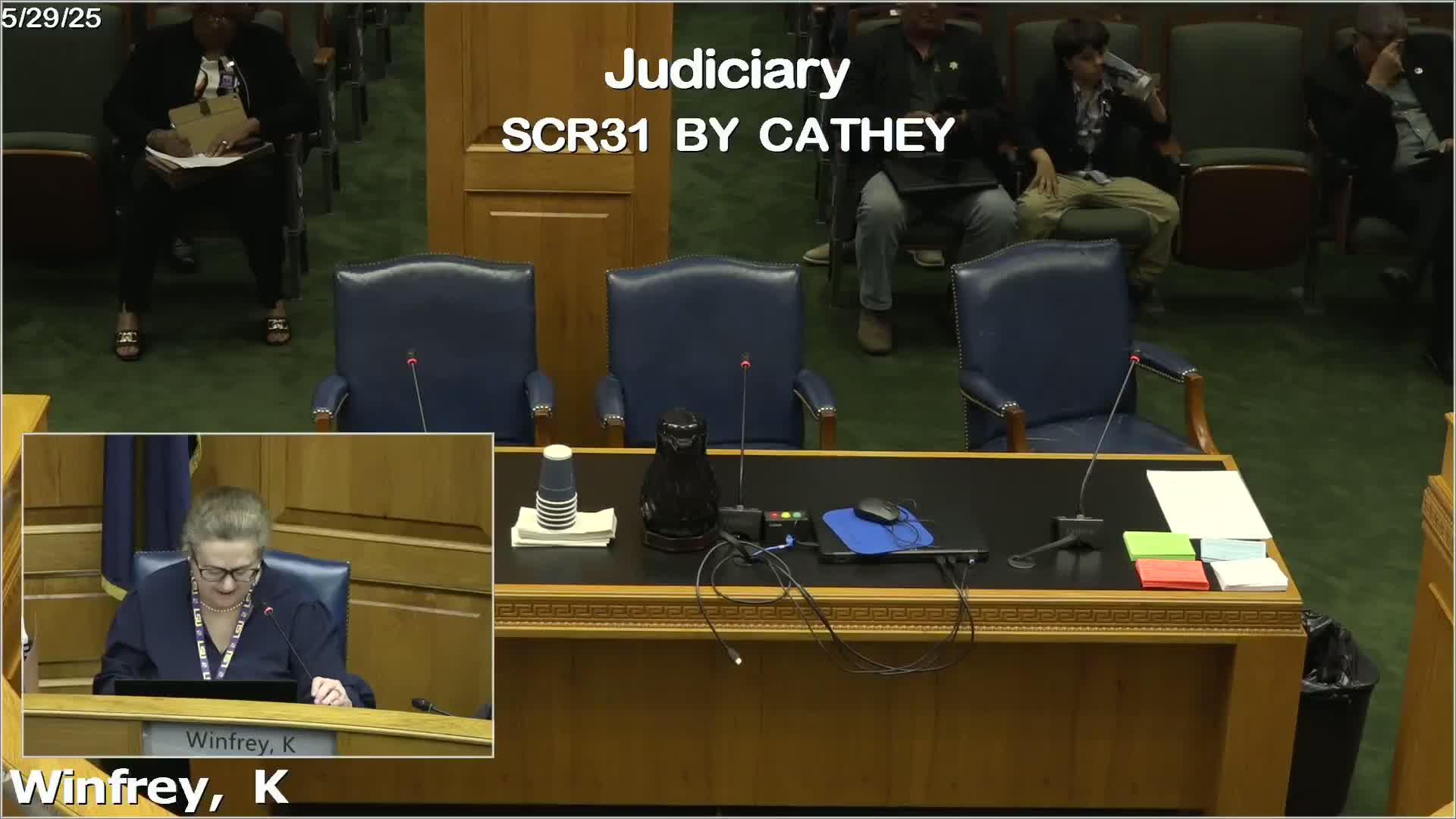
Sponsor asks Supreme Court to bar judges from campaign events; committee debates impartiality and role of canons
